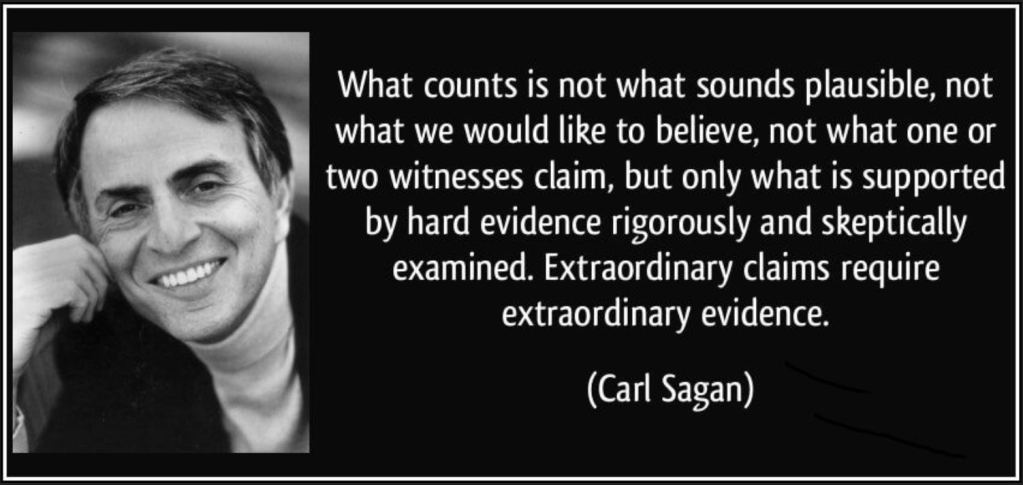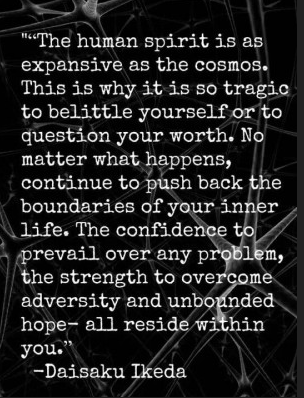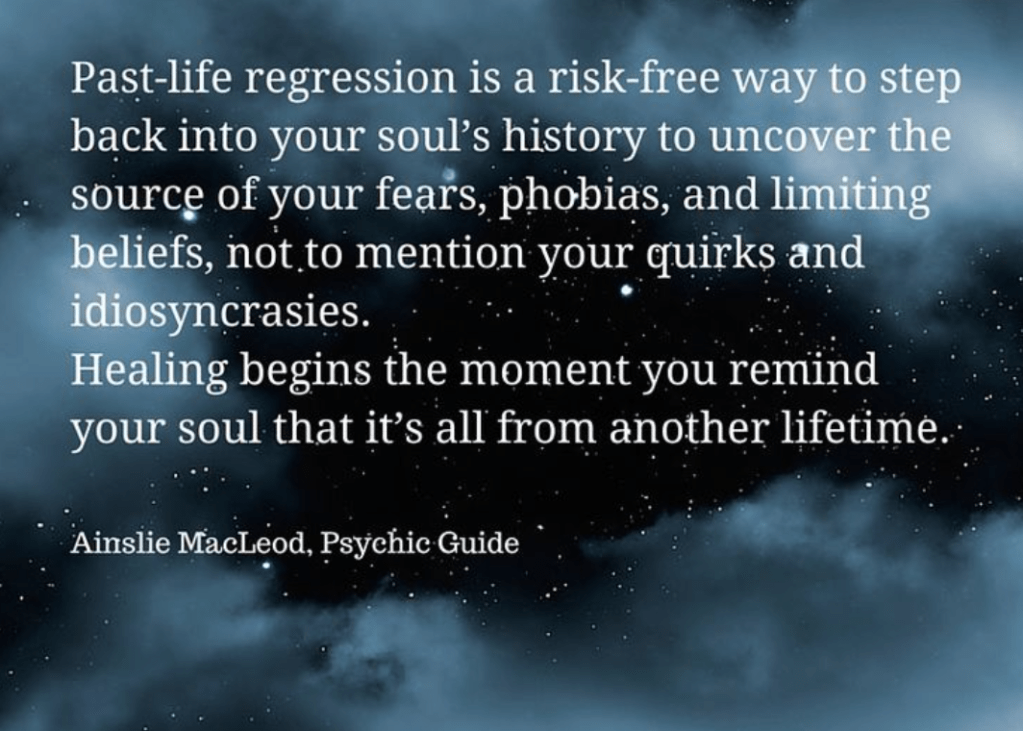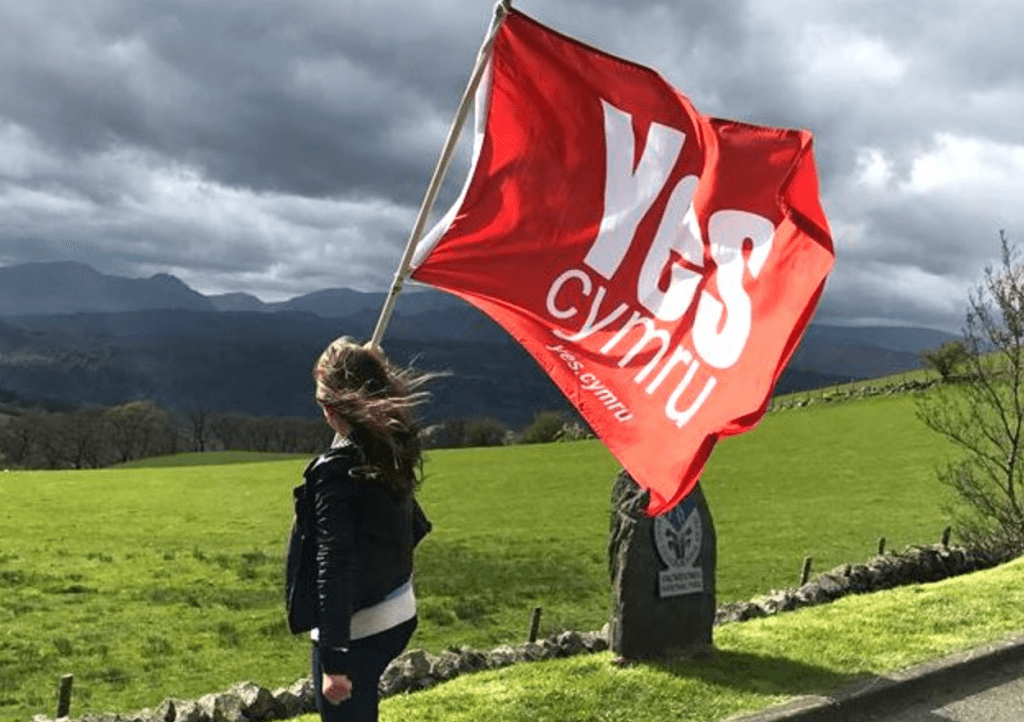What is Occam’s Razor?
Occam’s razor (also known as the ‘law of parsimony’) is a philosophical tool for ‘shaving off’ unlikely explanations. Essentially, when faced with competing explanations for the same phenomenon, the simplest is probably the correct one.
William of Occam pointed out that the most probable explanation of any phenomenon is the one that makes the fewest assumptions and/or raises the fewest questions.
It could be said that the scientific method is built upon the principles of Occam’s razor. Underdetermination says that for any theory in science there will usually be at least one other rival theory that could conceivably be correct, thus the scientific method uses Occam’s razor in order to focus on the more probable option in order to frame its working hypotheses. Over time, we therefore build our understanding from simple ideas to more complex ideas as we refine our theories based on accumulated evidence.

Remember, however, that Occam’s razor is just a heuristic, a rule of thumb, to suggest which hypothesis is most probably true, and therefore the best starting point. It doesn’t prove or disprove anything; it simply leads you down the path that’s initially the most likely to be correct. Of course, ‘simplicity’ can be very subjective, so you and I might come to different conclusions when faced with a decision between the same 2 hypotheses. But hey, we all have to start somewhere in our quest for truth, assuming truth matters to us (more of which later!)
Applying Occam’s Razor to spiritual experiences
Over the last few years, I have witnessed and participated in a variety of events that could be labelled ‘spiritual’. Being ever open-minded, my position has changed from sceptical and scornful to sceptical and respectful in the light of these experiences. I can attest that such things can be interesting, thought-provoking and even very helpful, in the hands of the right practitioners and guides. But some of the conclusions some people are drawn to remain, to my eyes, somewhere between improbable and fanciful (to put it a bit more respectfully).
I have always been an admirer of the human spirit; the ability to battle through and overcome the odds; our survival instinct; our hidden reserves of resourcefulness and stamina. These are qualities that lurk beneath the surface of us all to varying degrees. We are generally unaware of what we are capable of until the moments these reserves are called upon. They occupy a place in our subconscious minds, along with other instincts and subconscious programming.
The subconscious mind is a staggeringly complex thing. It operates all the functions of our body without our conscious effort. It stores vast quantities of information and memories in accessible archives. It gives us imagination, creativity, instincts and gives us our personality. I therefore conclude that anything we might describe as our soul, or our spirit, resides here too. To suggest that our soul or spirit can exist anywhere else, and especially outside of our heads and/or after our bodies die, raises a multitude of questions as to how this works; each of which multiplies the odds against it being true, just like an accumulator bet. These questions spawn plenty of speculation, but rarely any verifiable evidence. To date.
It is from this position that I have witnessed or experienced various activities with a purported spiritual dimension.
Let me explore a couple of examples.
Family Constellations
Family constellations is a therapeutic approach designed to help reveal the hidden dynamics in a family or relationship, going back generations potentially, in order to address any stressors impacting these relationships and heal them.
This approach may help people seeking treatment view their concerns from a different perspective, and the therapist/practitioner may offer the family constellations approach as a treatment for issues proving difficult to treat with traditional therapy.
This approach was developed by German psychotherapist Bert Hellinger in the mid-1990s. Family constellations therapy evolved out of his work as a family therapist and his belief in the energy, both positive and negative, found in familial bonds. Nearly 50 years of studying and treating families led to his observation of patterns of mental health concerns, illness, negative emotions, and potentially destructive behaviours within families, and he suggested individuals might subconsciously “adopt” these patterns as a way of helping other members to cope.
Proponents of family constellations believe the method to be less restrictive than other methods of therapy and support its capacity to allow people to see different perspectives and alternate solutions. Having said this, it draws on numerous other modalities, including Gestalt therapy, psychoanalysis, Virginias Saitir’s family sculpting, Psychodynamic therapy, hypnotherapy, systemic family therapy, and even some Zulu beliefs. Done well, by a trained, skilled and empathetic practitioner, it clearly has the potential to be very helpful, and I have seen it be just that.
A family constellations session typically takes place in a workshop made up of a group of individuals who are not related. Members of the group stand in for family members of the person or couple presenting a difficulty or concern. The person seeking resolution of an issue, who may be referred to as the seeker, or the group facilitator chooses these representatives and places them into position as members of the individual’s family, also choosing one person to take the place of the seeker in order to complete the family dynamic.
The use of other individuals to represent the family is believed to illuminate the disharmony within the family, and the individuals standing in as members of the family are believed to be able to feel and experience the emotions of the person whose role they have taken on. Hellinger, the developer of family constellations, calls this sense of connectedness, which is said to be felt telepathically by members of the group, the morphogenic field.
Although the representatives speak very little, the sense of knowing believed to result from the process is said to be apparent to all who participate. The seeker watches from the outside to gain new perspective on the situation. Even when an issue is not fully resolved by the constellation process, the individual who presented the issue may still achieve insight into the issue for which they are seeking help. None of the members of the constellation ought to know the seeker or be aware of the underlying issues brought forth by the seeker, but they often report an awareness of specific emotions and feelings directly related to the individual’s situation. The facilitator may ask members to explain what they are feeling, specifically in their relation to other members of the family. This may shed light on certain emotions and relational aspects that can be clearly connected to the issue being addressed.Resolution may not be immediately clear to the person who has presented the issue. The facilitator in the session repositions members, occasionally asking them to speak their feelings aloud. Members may be moved from place to place in the constellation until they find a position or are able to make a verbal statement expressing feelings of comfort with their place in the constellation.
Family constellations work is considered most effective in addressing concerns that are systemic in nature. These concerns might include family of origin issues, parent-child relationship difficulties, and intimate relationship challenges.
It may be used as a potential therapy method for people who:
· Are seeking to address negative or harmful relationship patterns
· Want to be in a romantic relationship
· Are attempting to resolve family entanglements
· Want to overcome inner turmoil
· Have experienced significant trauma, or loss
· Are in search of personal and professional success
Family constellations is gaining popularity as an alternative approach to therapy, particularly in Europe, America, Asia, and Australia, where it is seen by many as a powerful and cost-effective method of addressing relationship-based challenges. Its popularity may be in part due to the brief nature of the therapy and its unique method of resolving challenges in which others are involved without necessitating the presence of those other individuals.
Proponents of the family constellations approach believe each member of a family, adult or child, longs to feel significant and find a place within the family construct and support the method as a helpful step in the process of achieving this sense of significance and belonging. People who participate in this technique often find themselves unearthing surprisingly emotional reactions regarding their relationships, familial or otherwise, regardless of their age.
Many individuals report achieving significant insight and clarity through constellation work, but because of the subjective therapeutic process and experiential nature of family constellations, family constellations therapy is clearly not an evidence-based approach.
So, what is actually going on here?
The choice of participants is important and generally determines the success of the process, from what I have witnessed. They must be open-minded and empathetic people. The open-mindedness is important, I believe, as it allows them to access their own reserves of instinct, experience and imagination; their own spiritual dimension, if you like. In so doing, they can give the ‘seeker’ some new perspective and potential insights that may help them resolve the issues being addressed. All present can similarly draw parallels to their own lives and potentially benefit too.
What is not going on?
Occam’s Razor compels me to point out a couple of things. What family constellations don’t do is put us in touch with the extant spirits of people not present. To be fair, I haven’t seen practitioners explicitly suggest they do this, but it is an inference taken by some present. The spirits of other people, insofar as they exist at all, Occam’s Razor would dictate to me, exist in our often-deep-seated memories and experiences of these people, which can have lifelong legacies lurking subconsciously and impacting on our conscious interactions with people and the world in general. We can make peace in our minds by changing our attitudes to familial connections past and present. We can change our behaviours towards, and responses to, those still present in our lives, and how we respond to memories and past experiences of those that may now be dead. Family constellations can help us achieve these things.
Thus, this form of therapy does have a lot going for it. But is does involve rummaging around in the dark recesses of our subconscious, our soul, our inner spirit. It therefore does have the potential be quite dangerous too.
I have found references to the German agency, Forum Kritische Psychologie, that reported four cases of people seeking treatment for unhealthy obsessions they reported developing as a result of attending a family constellations workshop, and a Dutch psychiatrist reported another clutch of individuals experiencing mental health concerns they said developed after they attended a workshop.
Ironically, these cases all seem closely linked directly to Hellinger’s work in Germany, as he developed the approach. Hellinger, on closer examination, appears to be a rather unpleasant character with some distasteful views (misogynistic, homophobic and antisemitic, for example). This shouldn’t detract from the good work done with his family constellations approach by nicer human beings! But it does underline the need to know and trust that the practitioner is trained and competent, empathetic and has no underlying agenda before allowing them to stir what often lies very deep indeed.
I’m pleased to be able to report that the practitioner I am most familiar with is those things and operates in an admirably thoughtful and careful way. He holds regular sessions (every 4 weeks on a Thursday evening, last I looked) in Llantwit Major (scroll down this page: https://healthconscious.org.uk/yoga-studio-glamorgan/ ). Give it a go if you think it may be helpful to you. Like many such things, if you think it will be helpful, it likely will be helpful. If you think it won’t be helpful, it likely won’t be.
Past life regression
This is a technique that, while based on certain assumptions I find very difficult to accept, can still help give us a window into what lurks beneath our conscious minds.
Past Life Regression is a technique which purports to take an individual back through time to their previous lives by accessing normally hidden memories in the subconscious mind. It needs a trained therapist to lead you and employs the use of hypnosis along with visualisation procedures similar to those used in some forms of meditation.
I have experienced the benefits of hypnotherapy in dealing with a couple of issues as a young adult, and therefore have a lot of respect for its potential to address deep-seated issues, such as rage or anxiety. These issues are invariably tied to experiences in our pasts that we struggle to consciously recognise, rationalise and deal with.
But can they really be in any way connected to past lives? This assertion is based on one huge assumption that I remain highly sceptical about, namely reincarnation.
Proponents of the technique, as you’d expect from the name of the technique, clearly believe (or want us to believe) that we return to this world many times, often suggesting that this is how we build experience and evolve.
An alternative theory suggested by some is that we can access the memory of another soul, through the ‘Akashic’ records – the spiritual record of everything that has ever happened. This is a common thread to many eastern religious traditions. This is undermined by the propensity for the continuity of character traits which seem to pass from one life to another apparently.
Those wanting to appeal to a more scientific predisposition suggest a kind of ‘genetic memory’ whereby memories can get passed on from one generation to another somehow, through cell structure or DNA perhaps. This is undermined by people appearing to regress to many different cultural backgrounds. Oh, and the fact that there is no scientific understanding as to whether this exists or how it could work. To date.
Another explanation is that the process simply stimulates the imagination and accesses information stored subconsciously to conjure up narratives, prompted by the therapist. This should not be seen as meaningless, necessarily. There may well be insights and understandings to be had in how, what and why we see the narratives we do. This explanation is undermined by the reports of astonishingly accurate recollection of detail achieved by some participants.
However, applying Occam’s Razor, the latter fantasising hypothesis must be a lot more probable than the reincarnation hypotheses, if only because it raises far fewer questions that need answering to give the theory plausibility.
That people can have stored details of things they have learned that they struggle to consciously recall is not much of a stretch, is it? So, under hypnosis, creating narratives rich in detail that seems extraordinary really isn’t that improbable. Certainly not when set aside the questions I have about re-incarnation:
1. What is actually transferred from one life to another?
2. How does that happen? What is the mechanism?
3. Is a moment of death matched by a moment of re-birth? If not where are the ‘lives’ stored in between? And for how long, and why/how is one life matched to the next life?
4. Is it species-specific or can we be reincarnated as different lifeforms? Can it cross boundaries between species, genus, family, order, class, phylum or even kingdom? Could we have been plants, microbes, apes, snakes perhaps?
5. If we have past lives in different cultures, can we recall things in languages of which we have no knowledge? Why the emphasis on visual recollections only, ignoring other senses?
6. How does reincarnation work on a planet with hugely fluctuating populations? There was originally no life on this planet; what is the earliest point we can regress to, and why this point? If re-incarnation is species framed, then could we all regress to the original human(s)? Sapiens only? Or Neanderthals perhaps? If it is not species framed, could we regress to the very first lifeforms on the planet?
7. Is reincarnation constrained to planet earth? Or could our past existences span the galaxy or universe?
8. If past life regression is possible, is future life progression possible? If so, this is surely only as a fantasy, as how can we recall things that haven’t happened yet?
9. Does everybody have past lives, or can new original lives be created? If so, how does this work? I’ve heard proponents of re-incarnation suggest that, as with energy, new souls are never created or destroyed. This clearly conflicts with the no.6 as well.
10.Could or should we be held accountable in this life for things we did in past lives?
I’ve posed most of these questions to people who believe in reincarnation. Most have no answers. Some have plenty of conjecture or thoughts as to how they think it works; often very different to the next believer. The question about species specificism is especially divisive. And I have yet to meet anyone who has undertaken a past-life regression and found that they were a tree for 500 years, for example. Or an amoeba for 30 minutes.
Looking at all these questions, compared to those for the fantasising hypothesis, gives Occam’s Razor a clear verdict.
In the session I participated in, I imagined I was living in 9th Century Wessex, in a family living in a simple stone and thatched cottage (highly unlikely in reality, as homes were predominantly timber and thatch, not stone, especially in Wessex), and married a girl who looked remarkably like my current wife when she was of a similar age. This was, however, a period of history I particularly enjoyed at school – the old kingdoms that predated England; Alfred and the cake burning legends; up to the Norman Conquest, Hastings, Magna Carta etc. I’ve also been listening to a lot of Frank Turner recently – especially “England Keep My Bones” with songs like ‘English Curse’, ‘Rivers’ and ‘Wessex Boy’.
So, was my ‘past life regression’ an interesting little movie in my mind, constructed out of my imagination, fuelled by old interests and snippets of songs buzzing around my head?
Or did some part of me once inhabit the body of a 9th century Wessex boy?
What is most probable, Occam’s Razor demands of me?
To be fair, I found it a thoroughly engrossing experience and a totally harmless one. I struggle to see anything of lasting value in it, but maybe that requires further exploration in a one-to-one situation, rather than the group exercise I experienced. Through the power of suggestion, under hypnosis, I know that fears and phobias, etcetera, can be dealt with. In the group setting, I seem to have had just about the most vivid and coherent experience of any of those present, perhaps reflecting my genuine open-mindedness and willingness to engage with the process. But that doesn’t mean I’m going to automatically jump to improbable conclusions.
The hypnotherapist is a friend of mine that I have a huge amount of respect for. He has studied theology and has huge knowledge and integrity. And he also claims to be a spiritual medium! This is something I find incredulous, while not for a moment doubting his sincerity. I don’t know what is going on with this and I am keen to find out more. It raises at least as many questions as reincarnation does, which Occam’s razor demands fuels scepticism. (Can a medium only have contact with a spirit that hasn’t reincarnated into someone else’s life? Can we find out within whom a spirit from a past life – a relative perhaps – resides today? etc.) I hope he might be prepared to tackle some of these questions with me one day.
Conclusions
There is a growing awareness of, and market for, what we might call spiritual therapies, emerging from things like new age paganism and growing awareness of things like mindfulness and science behind meditation. They can be hugely beneficial, I have no doubt. I enjoy and benefit from some of them.
Even when they get wrapped up in various types of mysticism and the supernatural, I think they generally do more good than harm (notwithstanding acknowledging that they can and do harm some people when not carefully enough deployed).
But Occam’s Razor points out that probability will always favour the simpler hypothesis, which, by definition, will have fewer ‘what ifs’, ‘maybes’ and questions attached to it.
Of course, there are some big questions that science has no answers to yet. But I reject the notion of the supernatural, just as I reject the notion of alternative medicine. If a remedy works, it is medicine. The alternative to a medicine is an alternative remedy that doesn’t work.
If a phenomenon is real, it is natural and knowable. Supernatural things are either not real, or not yet knowable. Knowledge is built on verifiable evidence. To claim we know something without verifiable evidence to support it is a path to potential madness.
There is much that we know today that was unknowable in times gone by. Many proponents of things regarded as scientific orthodoxy today were ridiculed and/or persecuted in the past. We therefore have to remain open-minded and willing to assimilate new evidence as it arises.
The scientific method remains the by far the best way of sifting through alternative ideas and theories. It builds our understanding in layers of complexity, from a simple hypothesis, through a quest for evidence that may then lead to a more complex hypothesis requiring more detailed evidence. And so on.
It is slowly, but surely increasing our awareness of how the world and the universe works. Things that were imperceptible and unknowable no so long ago are now either understood or fuelling new avenues of investigation. Why should we assume that we cannot have verifiable evidence for a phenomenon we are asked to believe in? Why should we even entertain subscribing to notions without verifiable evidence? This is not to say that things that we, or more specifically I, find fanciful today might not become the accepted orthodoxy tomorrow.
When it comes to matters we might consider to be spiritual, there is a vast array of beliefs out there. Many conflict with each other (‘one true god’ v various pantheons of gods and goddesses etc). What we choose to believe in is (presumably) more probable, in our assessment, than some conflicting belief, which we are likely to think of as something between heretical and amusing.
How are we to adjudicate between competing claims, if not through evidence?
This is not as easy as it sounds though. Just as there is good and bad spirituality and spiritualists, there is good and bad science and scientists. Added to which, advances in scientific understanding can take a very long time to filter down into our education system to become the consensual orthodoxy. Charlatans are present in both the spiritual and scientific communities, feeding from people’s inability to understand evidence and evaluate sources. This is a huge (and likely deliberate) shortcoming of our education system. It’s not even that difficult to address. I, once more, flag up Massimo Pigliucci’s primer on this subject, ‘Nonsense on Stilts – How to Tell Science from Bunk’.
I guess the essence of my scepticism is wanting my beliefs to be based on truth as far as possible. I fully appreciate and understand that this is not important to many people.
I therefore believe in the scientific orthodoxy as I understand what goes in to producing it. It is humanities best estimation of the truth of the universe. That is the best we have.
With regards things we call spiritual, science either has an idea (a hypothesis) but lacks the evidence or the means to get the evidence to substantiate it, or it has no idea and no inclination to pursue it, especially where it conflicts with established orthodoxy. All this changes with breakthroughs in methodology and/or available evidence. Such as when we developed the means to establish that the earth orbits the sun, rather than the other way round. This is a good example as it illustrates how religion and spiritual beliefs (the Bible is the word of God) can be an obstacle to the pursuit of truth. Copernicus learned this the hard way. I also found questioning Catholic teaching a scalding experience.
Striving for truth is the goal of science. It is a never-ending pursuit as we can never know when we have the truth, with absolute certainty, and we are never likely to know the whole truth of the whole universe.
With regards to spirituality, I believe that the more enlightened understand that it offers a perspective that can be beneficial to our approach to each other and the planet, irrespective of whether it is based in real world truth. It can still help us understand the deeper relationships we have with our own subconscious minds as well as fostering empathy for others and a respect for the world around us and beyond. It does this through allegory and the power of suggestion and through tapping into the incredible potential of our subconscious minds. There is evidence to support these assertions.
But extraordinary claims demand extraordinary evidence. This is why I like to keep Occam’s Razor handy, to shear away the improbable and leave me comfortable in that what I believe, and to a lesser extent what I don’t reject, have a reasonable probability of actually being based in truth. Amen.















